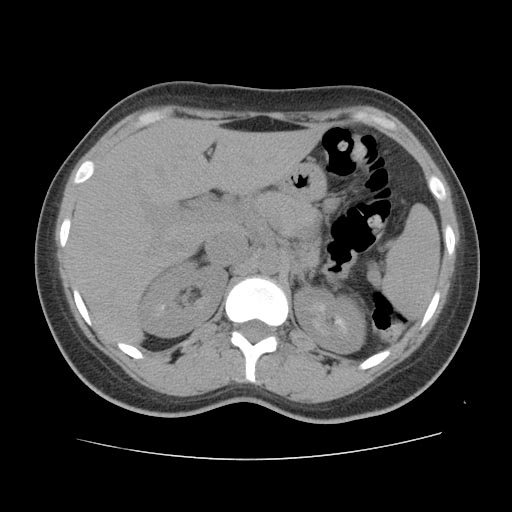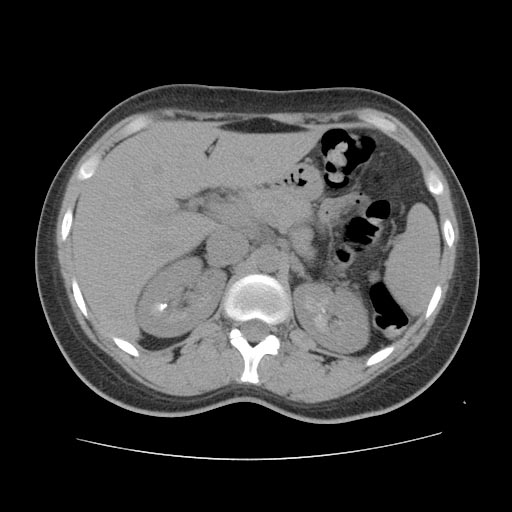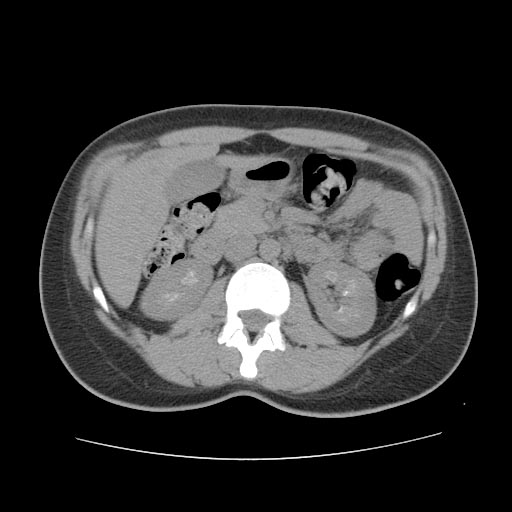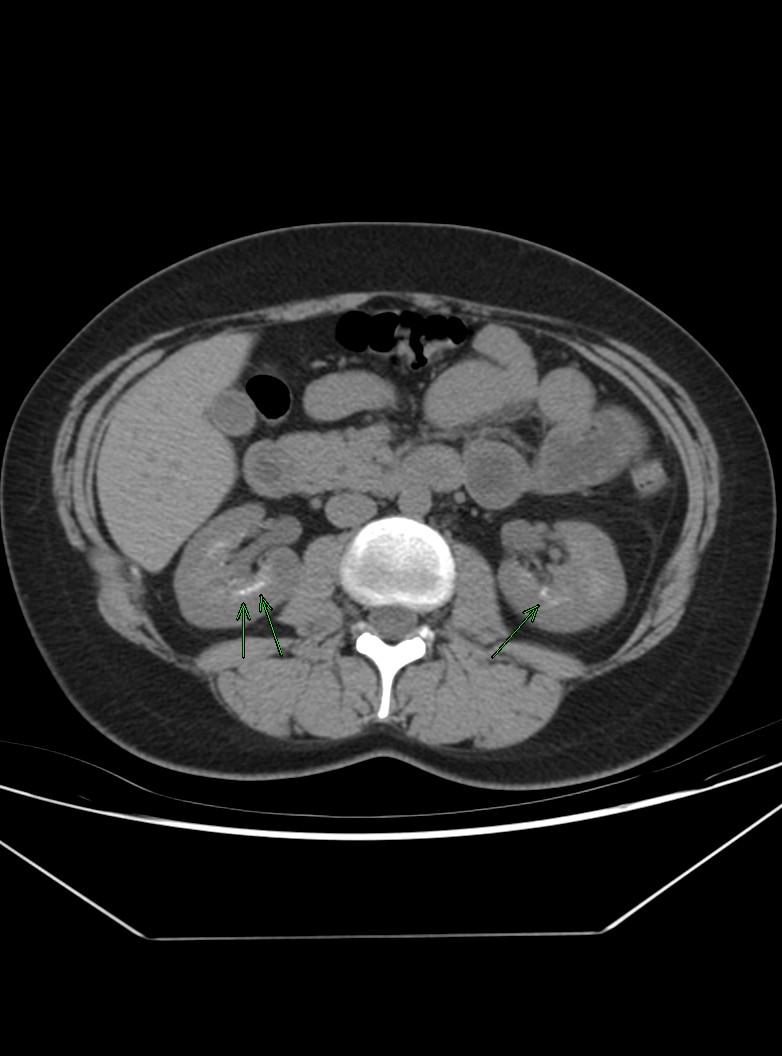Medullary sponge kidney: Difference between revisions
| Line 57: | Line 57: | ||
Image:Med23011902.jpg | Image:Med23011902.jpg | ||
</gallery> | </gallery> | ||
==References== | ==References== | ||
Revision as of 14:53, 28 September 2012
| Medullary sponge kidney | |
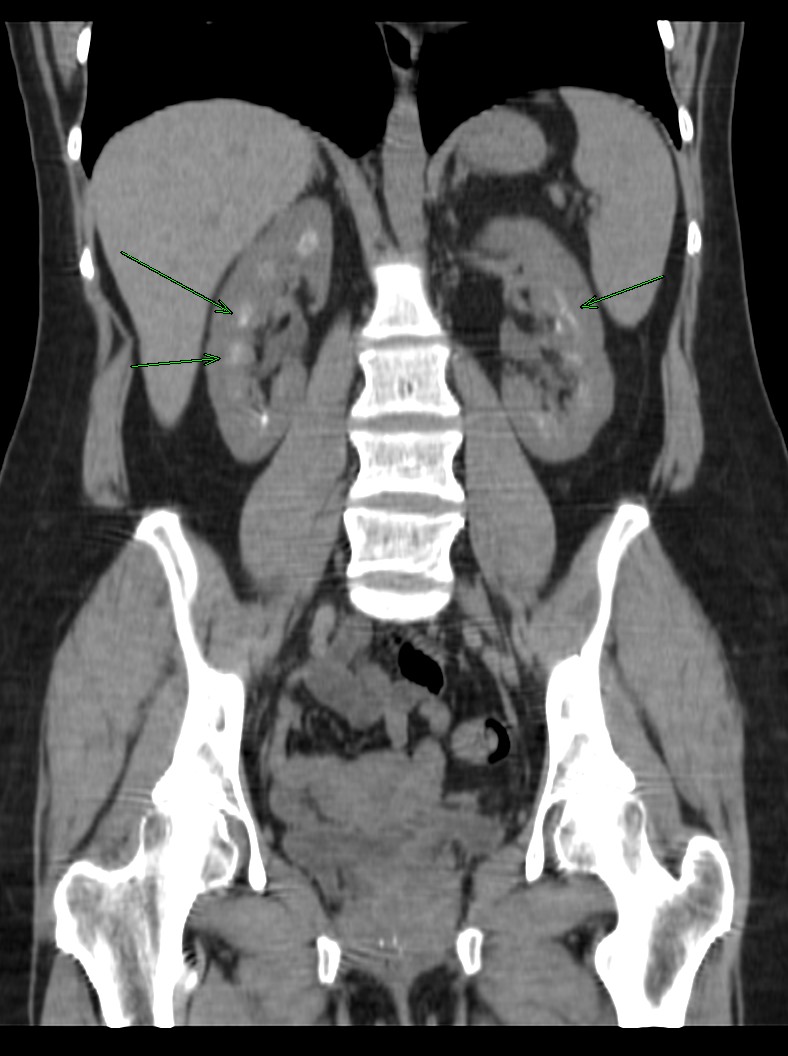 | |
|---|---|
| Medullary sponge kidney. Image courtesy of RadsWiki |
|
Medullary sponge kidney Microchapters |
|
Diagnosis |
|---|
|
Treatment |
|
Case Studies |
|
Medullary sponge kidney On the Web |
|
American Roentgen Ray Society Images of Medullary sponge kidney |
|
Risk calculators and risk factors for Medullary sponge kidney |
Editor-In-Chief: C. Michael Gibson, M.S., M.D. [1] ; Associate Editor(s)-in-Chief: Cafer Zorkun M.D., PhD.
Overview
Medullary sponge kidney is a congenital disorder of the kidneys characterized by a cystic dilatation of the collecting tubules in one or both kidneys.
Diagnosis
Symptoms
In most cases, medullary sponge kidney affects only one kidney, in which case kidney function is usually preserved and individuals may be asymptomatic. However, these individuals are at increased risk for nephrolithiasis (kidney stones) and urinary tract infection.
Ultrasonography
- Echogenic medullary pyramids in patients with medullary sponge kidney, irrespective of the presence of medullary nephrocalcinosis.
- US findings can demonstrate complications related to calculus disease.
Computed Tomography
- Unenhanced CT scan findings may be normal or demonstrate medullary nephrocalcinosis.
- Enhanced scans may demonstrate contrast accumulation within the papillae.
Patient #1
Patient #2'
